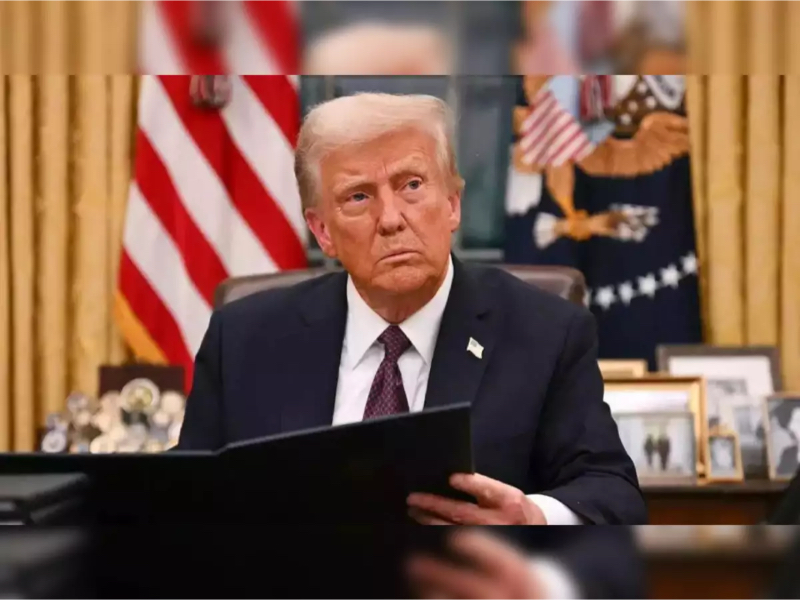- President Trump’s upcoming tariff announcements on April 2 are causing significant concern in both cryptocurrency and traditional markets.
- Bitcoin has already dropped 18% since the initial tariff announcement, reflecting growing investor caution amid trade war fears.
What happened: Trump’s tariffs impact cryptocurrency market significantly
As the US prepares for new tariff announcements on April 2, concerns about a trade war are intensifying. President Trump’s trade policies have already impacted various markets, including cryptocurrencies. Since the initial announcement of import tariffs on Chinese goods in January, Bitcoin has experienced a significant decline, dropping 18%.
Additionally, the S&P 500 index has fallen over 7%. This downward trend highlights the interconnectedness of traditional and cryptocurrency markets, as investor confidence wanes amid rising fears of inflation linked to global trade tensions.
Also read: Trump announces escalating tariffs on imports
Also read: Trump criticises CHIPS act in congress address
Why this is important
The looming tariffs mark a critical moment for both the cryptocurrency and broader financial markets. As investors grapple with the potential repercussions of a trade war, the impact on risk assets becomes increasingly evident. Historically, geopolitical tensions have led to market volatility, and the current situation exemplifies this trend.
Cryptocurrency, often viewed as a hedge against traditional market fluctuations, is not immune to these pressures. The decline in Bitcoin’s value reflects a broader risk aversion among investors.
Moreover, this scenario positions cryptocurrencies uniquely within the financial landscape. As traditional markets react to tariffs, the ongoing evolution of digital currencies continues to attract attention. Companies in the crypto space are adapting, with many exploring innovative solutions to mitigate risks associated with market instability.
Understanding these dynamics is essential for investors looking to navigate the complexities of the current economic climate. The intersection of trade policies and digital currencies highlights the need for awareness and adaptability in investment strategies, making this story particularly relevant for tech-savvy readers.

